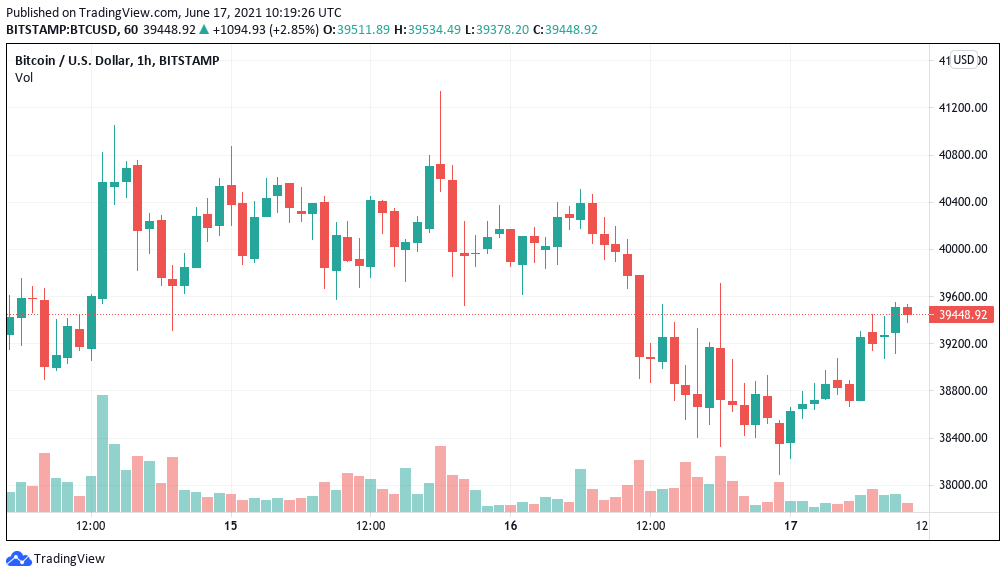Bitcoin (BTC) stayed below $40,000 on June 17 as a surging U.S. dollar added to downward BTC price pressure.
BTC/USD bounces at $38,000
Data from Cointelegraph Markets Pro and TradingView showed BTC/USD trading at around $39,300 on Thursday.
The largest cryptocurrency fell during a meeting of the Federal Reserve the day before in which Chair Jerome Powell acknowledged inflation could run higher than planned in the short term. As Cointelegraph reported, May’s Consumer Price Index (CPI) report showed inflation hitting a 13-year high last month.
While traditionally a boon for Bitcoin, however, Powell’s confidence in inflation returning to normal long term ultimately served to boost the dollar more than BTC.
“Yes, they are anchored and they’re at a good place right now — it’s gratifying to see them having moved off of their pandemic lows,” Powell said in subsequent media comments about inflation indicators.
“It’s fundamental in our new framework to assure that longer-term inflation expectations are anchored at a place that is consistent with our goal.”
That goal is currently around 2%, with the Fed acknowledging that there would be periods where rates overshoot that threshold.
The dollar gained on the back of the meeting, with the U.S. dollar currency index (DXY) advancing to two-month highs.
This is a classic provider of friction for Bitcoin, and already tepid sentiment over the outlook for the bull run of 2021 continuing saw a further test.

Small futures gap provides possible target
Popular trader Crypto Ed nonetheless noted the positive implications of BTC/USD bouncing off $38,000 support at its intraday lows.
Related: Pantera CEO: Crypto market ‘panic’ is subsiding, now’s the time to buy
“Let’s not forget the possible extension to fill the CME gap,” he added as part of comments on the low, with the futures gap — another favorite short-term price influencer — at $37,000.
At the same time, fellow trader Peter Brandt highlighted a number of gaps which remain unfilled on BTC/USD, while adding that he doesn’t believe all gaps must get filled.

Previously, Cointelegraph reported on the changing face of Bitcoin investor habits during this prolonged period of lower prices.
Hodlers are storing coins for longer, and even those who bought during the first months of the bull market remain committed to not selling, data shows.














